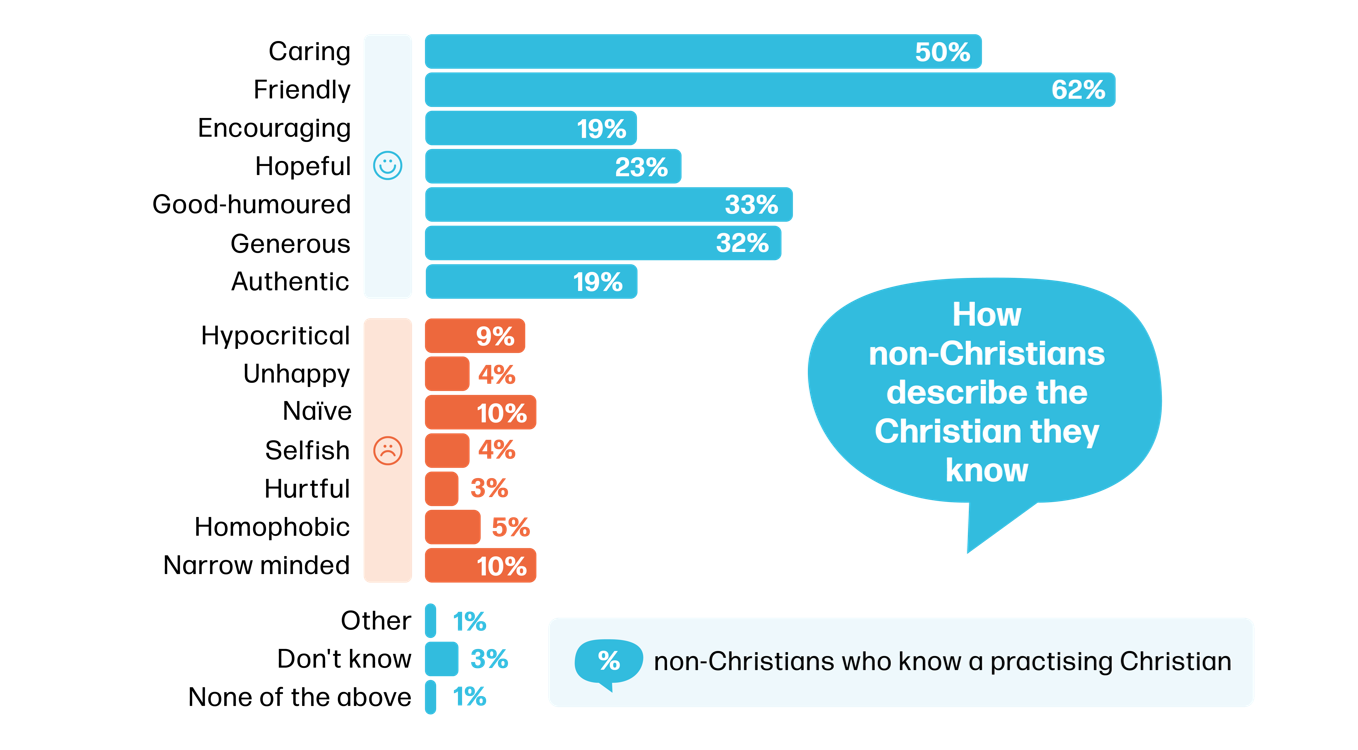Talking Jesus
This year 4,000 UK adults completed a professional survey about faith, Christians and the Church, and their responses might surprise you.
The Talking Jesus report - published in April - sheds light on the current state of faith in the UK, how people come to faith in Jesus and how we, as the church, can talk about Jesus more effectively with our friends and in our community.
We asked a group of Sheffield church leaders to share their reactions to reading the report:
Jon Watts, from Rock Christian Centre
Abi Alabede, from City of Refuge Foursquare Church
Dave May, from Emmanuel Sheffield
Gina Kalsi, from Attercliffe Centre of Mission
Giles Holloway from King's Centre
Ben Woollard, from the Arise Sheffield team
What surprised you most when reading the Talking Jesus report?
Jon Watts: What surprised me - positively & negatively:
1. The percentage of those impacted by reading the Bible (24% of Christians said that they became followers of Jesus through reading the Bible)
2. The percentage using Google to find out about Jesus (26% said they would find search Google for information to answer questions they had about Jesus)
3. The amazing percentage of people who believe in the resurrection of Jesus (16% said they believe word-for-word the account in the New Testament). I think it links to the concern about ‘what happens when we die?’ and shows many people want to believe in miracles. This means Easter evangelism is really important.
I wonder if a question should be added to future research regarding the percentage of those coming to faith whose first point of contact were social action projects such as CAP / Foodbanks / Eden Projects etc.
Ben Woollard: Yes - that second point really struck me too, Jon. The majority of people ask Google about Jesus before they ask a person! When I was younger and exploring faith, I don’t think I did any internet research on Jesus, I spoke to people I knew first.
Dave May: I noticed that as well. Immediately made me wonder what answers you get if you ask Google! Perhaps the thing that jumped out to me most overall is the shrinking % of people who believe Jesus was a real person.
Giles Holloway: I was struck by peoples’ impressions of Jesus, and of Christians more generally: they’re both viewed more positively than I imagined. I was also really encouraged to see that those who are sharing their faith are doing the right things. For example, hearing others’ stories and sharing their story of faith is having an impact: 18% of Christian adults came to faith this way. This means that there is then the potential to make a disciple directly - rather than just a convert - which is the problem with some of the other routes to faith, like the internet or a pamphlet. Having a relationship with other believers is key.
Regarding the % of people who believe Jesus was a real person: how might that affect what you focus on in outreach?
Dave May: I think at the most basic level there is encouragement that when speaking with people about Jesus not to make the assumptions and to ask questions about what people think about Jesus. For me, asking questions often leads to opportunities to then share lovingly some of my experience/beliefs. The Alpha course is pretty helpful on this - both for those seeking and equipping Christians to share.
In a weird sort of way there is encouragement in realising people aren’t turning down Jesus based on true knowledge of him and his message! Maybe many would be interested if someone takes the time to listen to them and share with them some of who Jesus really is.
Ben Woollard: Yes! And I think the challenge is finding the spaces where those real conversations can happen. Alpha is great for that.
What did you think, reading the findings about how non-Christians describe the church, and practising Christians they know?
Ben Woollard: 26% of non-Christians describe the church as hypocritical and narrow-minded. As someone who loves the local church this one is tough! Especially because it's so different from how people view Christians [only 9% and 10% describe the practising Christians they know as hypocritical or narrow-minded]. Perhaps we should focus more on empowering the person to share their faith, rather than the church? I think a local church that is well-connected to its community can become a draw as people see it serving the area, but the research suggests it's an uphill battle.
Gina Kalsi: Yes, as you say, the disparity between what non-believers think of the Christians they know best, and what they think of ‘the church’ was striking. I wonder how much of this is about relationship. When "the church" is quoted it is often about something negative (esp in media) but if you know an individual, it seems to reach beyond the general. Personal faith vs institutional religion.
There is also a deep mistrust of establishment and institutions for many. I wonder if small, informal Christian gatherings are more accessible to people who have been hurt, or don't trust organised religion? A challenge for churches where large single gatherings are the main focus.
Abi Alabede: People are free to say what they think about Christians but some of the points [on the chart above] got me thinking. We should be the happiest people on earth 😁. The Joy of the Lord should be seen in us. I will not like to be described as an unhappy (miserable) Christian. Also, I think being selfish is not a trait that we should have. God, help us as we reveal God's love through our attitudes and being intentional about our character.
From the report, what strikes you as the biggest challenge for Sheffield this year?
Ben Woollard: That only 53% of non-Christians think they know a practising Christian: this is the biggest challenge for our church and for me personally I think! To give space in my life to know and be known by more people outside the church. We've recently heard lots of exciting stories of people receiving dreams about Jesus and coming to churches in Sheffield, however I wonder if this is also a loving challenge from Jesus: he has to give them dreams because they don’t know any Christians. Or, perhaps those who they do know are 'secret believers' who are unsure how to share their faith.
What will you be doing differently as a result of reading the report?
Giles Holloway: We need to encourage the 50% who don’t share their faith and equip the 30% who don’t feel confident. We also need to empower the whole church to get to know more non-Christians as half the country doesn’t seem to know any! So, I’m going to be more intentional and focussed on helping myself and others get to know more non-Christians and become more confident in the gospel and sharing Jesus with others.
Find out more about the Talking Jesus report - and what it could mean for your church - here: https://bit.ly/arisetalkingjesus







